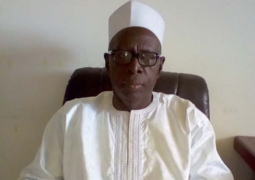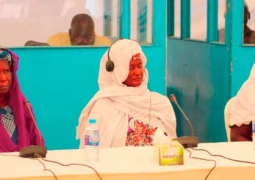
The
Arrival of Ramadan
This event is confirmed by sighting the new moon, even if it is seen by only one just person, or by the passage of thirty days in the immediately preceding month of Sha’ban.
Ibn ‘Umar said: “The people were looking for the new moon and when I reported to the Messenger of Allah that I had seen it, he fasted and ordered the people to fast.” This is related by Abu Dawud, al-Hakim, and Ibn Hibban, who declared it to be sahih.
Abu Hurairah reported that the Prophet instructed: “Fast after you have seen it [the new crescent] and end the fast [at the end of the month] when you see it. If it is hidden from you, then wait until the thirty days of Sha’ban have passed.” This is related by al-Bukhari and Muslim.
Commenting on these reports, at-Tirmizhi states: “Most knowledgeable people act in accordance with these reports. They say that it is correct to accept the evidence of one person to determine the beginning of the fast. This is the opinion of Ibn al-Mubarak, ash-Shaf’i, and Ahmad. An-Nawawi says that it is the soundest opinion. Concerning the new moon of Shawwal [which signifies the end of the fast], it is confimmed by completing thirty days of Ramadan, and most jurists state that the new moon must have been reported by at least two just witnesses. However, Abu Thaur does not distinguish between the new moon of Shawwal and the new moon of Ramadan. In both cases, he accepts the evidence of only one just witness.”
Ibn-Rushd comments that: “The opionion of Abu Bakr ibn al-Munzhir, which is also that of Abu Thaur and, I suspect, that of the Zhahiri school of thought, is supported by the following argument given by Abu Bakr al-Munzhiri: there is complete agreement that breaking the fast is obligatory, that abstaining from eating is based on one person’s report, and that the situation must be like that for the beginning of the month and for the ending of the month, as both of them are simply the signs that differentiate the time of fasting from the time of not fasting.”
Ash-Shaukani observes: “If there is nothing authentic recorded that states that one may only accept two witnesses for the end of the month, then it is apparent, by analogy, that one witness is sufficient, as it is sufficient for the beginning of the month. Furthermore, worship based on the acceptance of one report points to the fact that such singular reports are accepted in every matter unless there is some evidence that specifies the peculiarity of specific cases, such as the number of witnesses concerning matters of wealth, and so on. Apparently this is the opinion of Abu Thaur.”
Different Locations
According to the majority of scholars, it does not matter if the new moon has been sighted in a different location. In other words, after the new moon is seen anywhere in the world, it becomes obligatory for all Muslims to begin fasting, as the Prophet said: “Fast due to its sighting and break the fast due to its sighting.” This hadith is a general address directed to the whole Muslim world - that is, “if any one of you sees the moon in any place, then that will be a sighting for all of the people.”
According to ‘Ikrimah, al-Qasim ibn Muhammad, Salim, Ishaq, the correct opinion among the Hanafiyyah, and the chosen opinion among the Shaf’iyyah, every “country” (or territory) is to take into consideration its own sighting and not necessarily to follow the sighting of others. This is based on what Kuraib said: “While I was in ash-Sham, the new moon of Ramadan appeared on Thursday night. I retumed to Madinah at the end of the month. There, Ibn ‘Abbas asked me: ‘When did you people see the new moon?’ I said: ‘We saw it on Thursday night.’ He said: ‘Did you see it yourself?’ I said: ‘Yes, the people saw it, and they and Mu’awiyyyah fasted.’ He said: ‘But we saw it on Friday night. We will not stop fasting until we complete thirty days or until we see the new moon.’ I said: ‘Isn’t Mu’awiyyah’s sighting and fasting sufficient for you?’ He said: ‘No . . . This is the order of the Messenger of Allah.’ “This is related by Ahmad, Muslim, and at-Tirmizhi.
About the hadith, at-Timmizhi says: “It is hassan sahih ghareeb. Scholars act in accordance with this hadith. Every land has its sighting.” In Fath al-’Alam Sharh Bulugh al-Maram, it is stated: The [opinion] closest [to the truth] is that each land follows its sighting, as well as the areas that are connected to it.”
Sighting of the Crescent by one Person
The scholars of fiqh agree that if only one person sees the new moon, he is to fast. ‘Ata differs and says that he is not to fast until someone else also sights the new moon with him. The correct position is that he is to break the fast, as ash-Shaf’i and Abu Thaur have ruled. The Prophet has based the fast and its breaking on the sighting of the moon. One’s own sight is enough for him and there is no need for another person’s sighting.
Fasting (As-siyam)
As-Siyam generally means “to abstain from something.” For example, a verse in the Qur’an says: “I have vowed to the Merciful to abstain--that is, from speaking.
What is meant here is abstaining from food, drink, and sexual intercourse from dawn until sunset with the explicit intention of doing so (for the sake of Allah).
The Virtues of Fasting
Abu Hurairah reported the Messenger of Allah, upon whom be peace, saying: “Allah said: ‘Every action of the son of Adam is for him except fasting, for that is solely for Me. I give the reward for it.’ The fast is a shield. If one is fasting, he should not use foul language, raise his voice, or behave foolishly. If someone reviles him or fights with him he should say, ‘I am fasting,’ twice. By the One in whose hand is the soul of Muhammad, the [bad] breath of the one who is fasting is better in the sight of Allah on the Day of Resurrection than the smell of musk. The one who is fasting is happy at two times: when he breaks his fast he is happy with it, and when he meets his Lord he will be happy that he has fasted.” This is related by Ahmad, Muslim, and an-Nasa’i. A similar version was recorded by al-Bukhari and Abu Dawud, but with the following addition: “He leaves his food, drink, and desires for My sake. His fasting is for Me... I will give the reward for it, and for every good deed, he will receive ten similar to it.”
‘Abdullah ibn ‘Amr reported that the Messenger of Allah, upon whom be peace, said: “The fast and the Qur’an are two intercessors for the servant of Allah on the Day of Resurrection. The fast will say: ‘O Lord, I prevented him from his food and desires during the day. Let me intercede for him.’ The Qur’an will say: ‘I prevented him from sleeping at night. Let me intercede for him.’ And their intercession will be accepted.” Ahmad related this hadith with a sahih chain.
Abu Umamah reported: “I came to the Messenger of Allah and said: ‘Order me to do a deed that will allow me to enter Paradise.’ He said: ‘Stick to fasting, as there is no equivalent to it.’ Then I came to him again and he said: ‘Stick to fasting.”’ This hadith is related by Ahmad, an-Nasa’i, and al-Hakim who classified it as sahih.
Abu Sa’id al-Khudri reported that the Messenger of Allah said: “No servant fasts on a day in the path of Allah except that Allah removes the hellfire seventy years further away from his face.” This is related by “the group,” except for Abu Dawud.
Sahl ibn Sa’d reported that the Prophet said: “There is a gate to Paradise that is called ar-Rayyan. On the Day of Resurrection it will say: ‘Where are those who fasted?’ When the last [one] has passed through the gate, it will be locked.” This is related by al-Bukhari and Muslim.
To be continued



